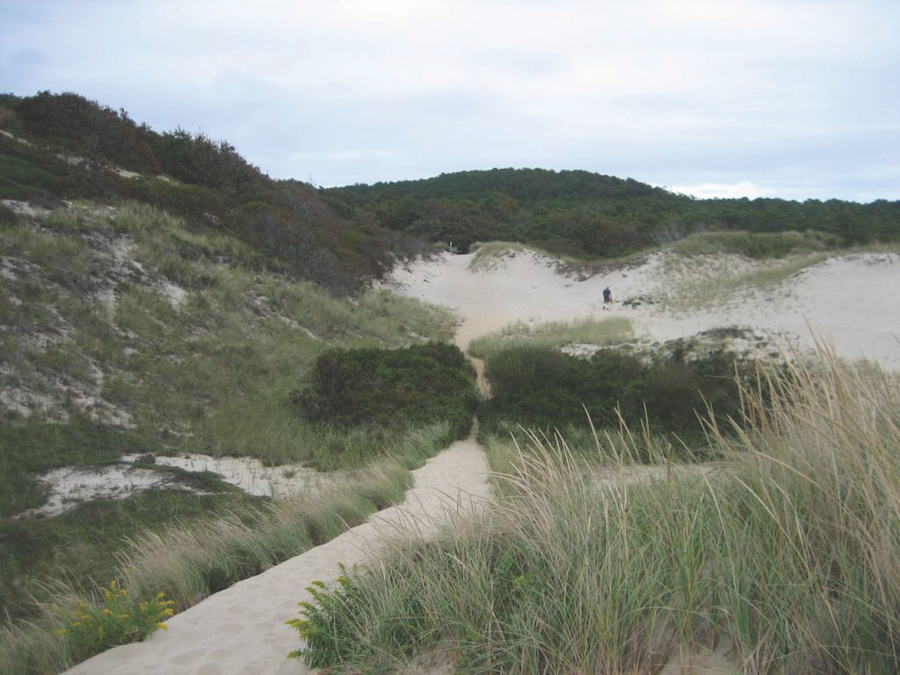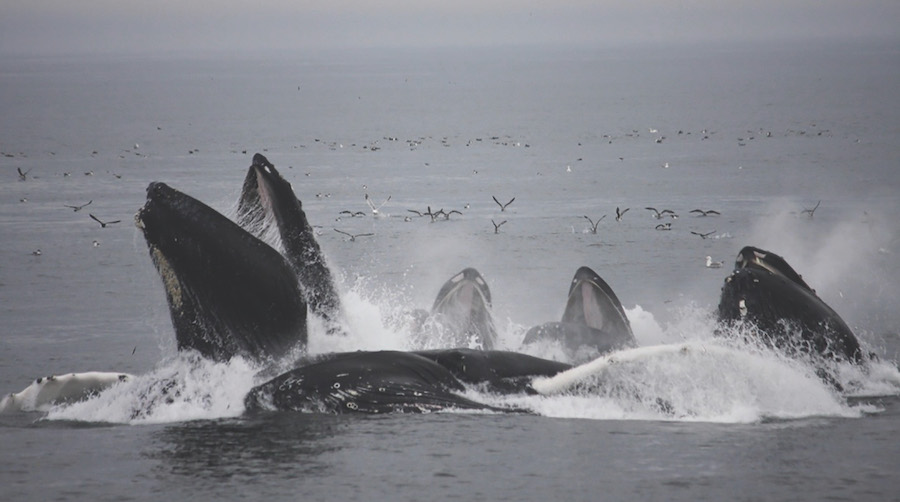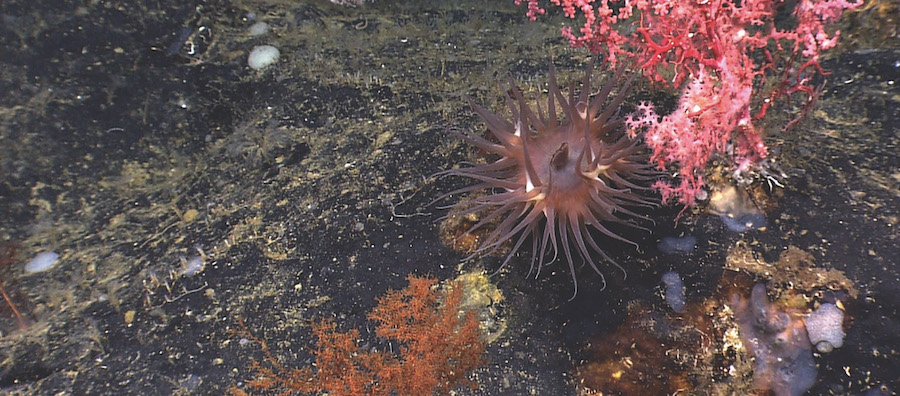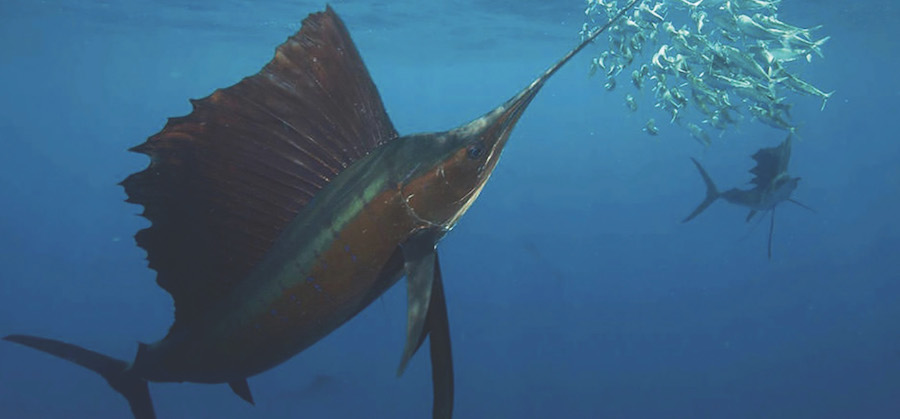WELLFLEET — Agnes Mittermayr, a marine ecologist at the Center for Coastal Studies (CCS) in Provincetown, has coined a new term to describe the dark, sludgy material that fills Wellfleet Harbor: “black custard.”
“Initially, everyone called it ‘mayo,’ ” she said.
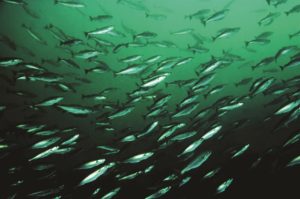
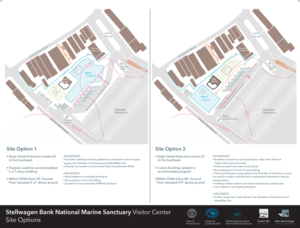
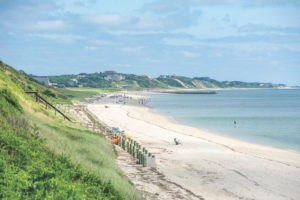
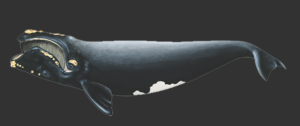 After a decade of decline, the scientists who have spent years studying the whales and fishermen who have spent tens of thousands of dollars to work around the whales are asking: what more can be done?
After a decade of decline, the scientists who have spent years studying the whales and fishermen who have spent tens of thousands of dollars to work around the whales are asking: what more can be done?






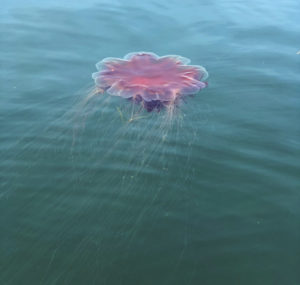
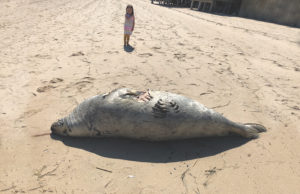 The immense corpse lay on its back on the upper beach, eyes heavenward, although unseeing. Its full abdomen, up-thrust chin, bristly whiskers, and jowly throat suggested a human quality; if fitted with a bowler hat, from a distance it could have been mistaken for a 19th-century British gentleman at leisure. But this notion was belied by the large gash in its underside and the significant bite marks in its side and flippers. These wounds support the very reasonable hypothesis that this animal, a large bull gray seal, was the victim of a great white shark attack.
The immense corpse lay on its back on the upper beach, eyes heavenward, although unseeing. Its full abdomen, up-thrust chin, bristly whiskers, and jowly throat suggested a human quality; if fitted with a bowler hat, from a distance it could have been mistaken for a 19th-century British gentleman at leisure. But this notion was belied by the large gash in its underside and the significant bite marks in its side and flippers. These wounds support the very reasonable hypothesis that this animal, a large bull gray seal, was the victim of a great white shark attack.